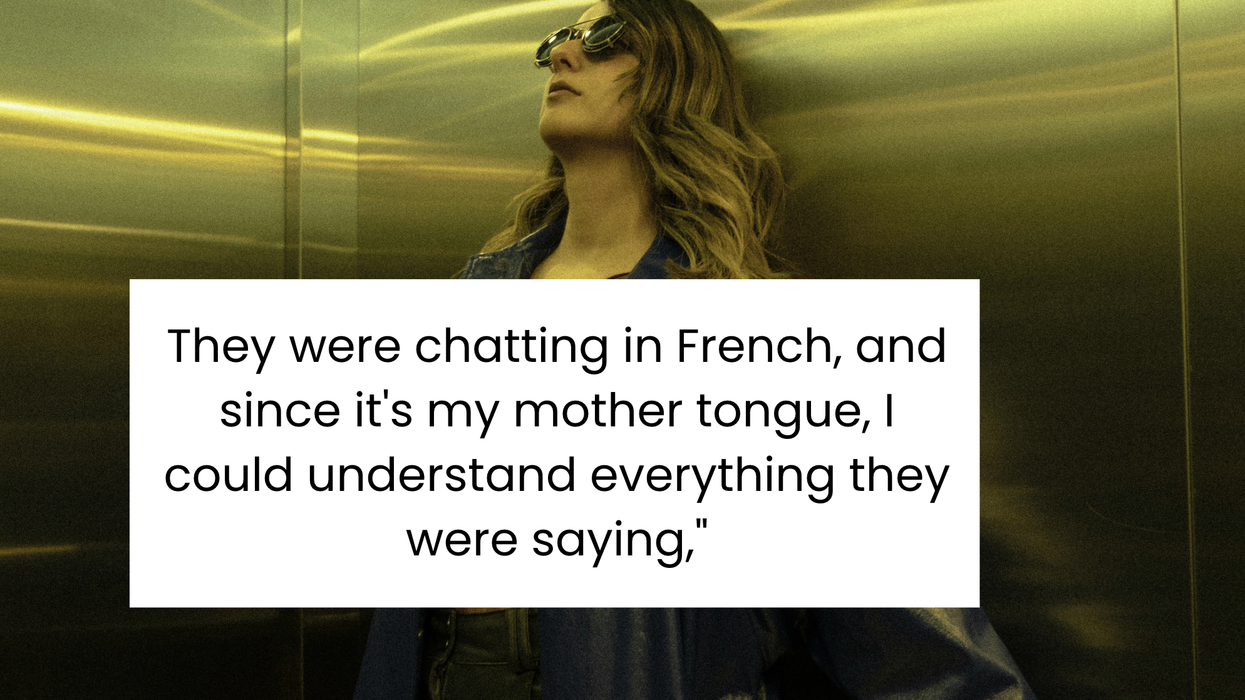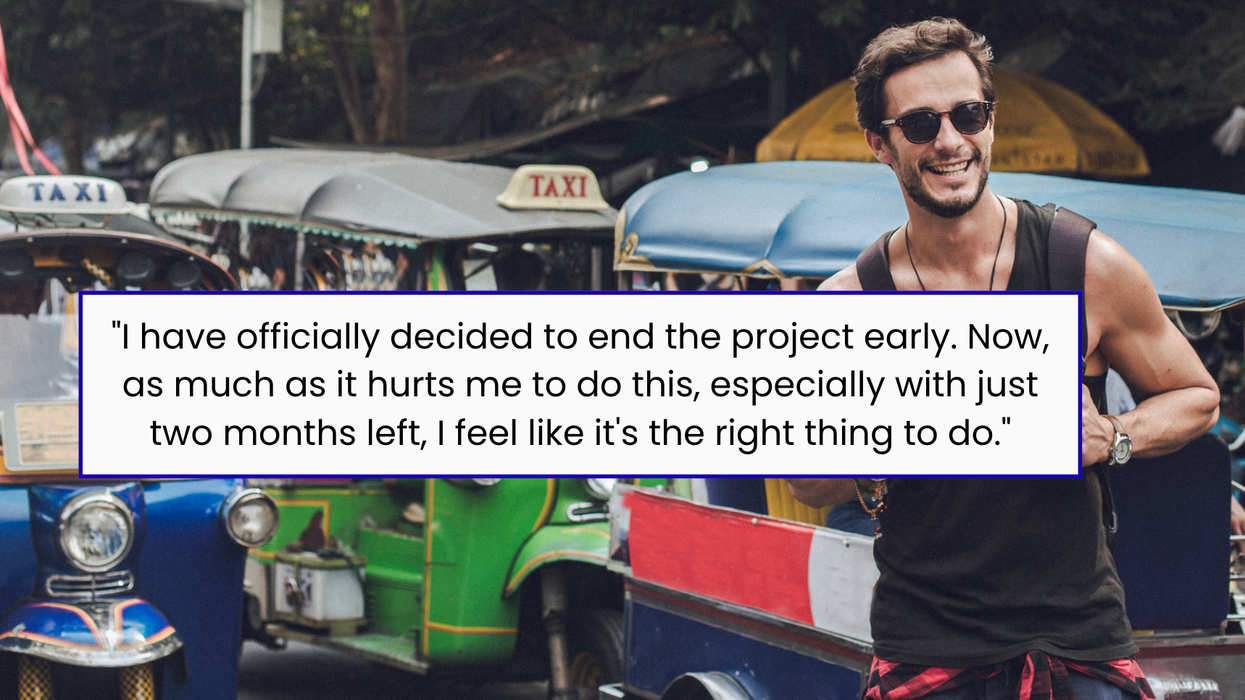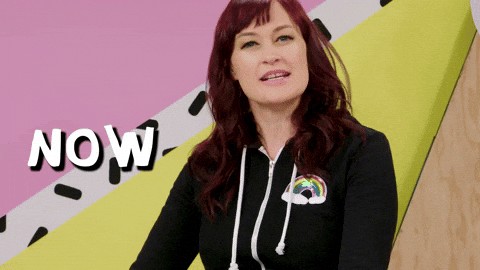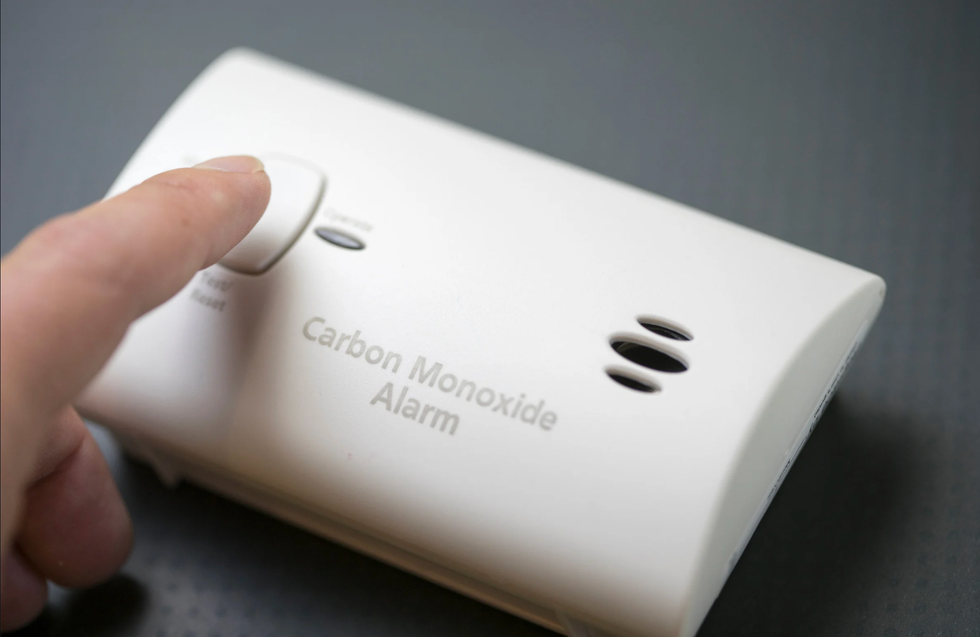If the homeowners' association (HOA) demands that someone rip out their vibrant, wild garden, what happens if they just plant more? In a Reddit post, one redditor shared a photo of an eco-conscious insect sanctuary. They wrote in their caption, "Guess what HOA. You have no power here. So many bees and butterflies."
It can be confusing to understand what rights a homeowner has when compared to the mythical reach of a HOA. This person's garden might be unique, but the approach can be something every homeowner can learn from. If you're HOA feels a little bit more like a tyrant, there are ways to protect your rights without losing sleep.
These are seven steps to follow when facing a difficult homeowners' association:

1. Understanding the rules
If you're going to be interacting with an HOA, it's best to know the rules behind this governing body. A 2025 article in Better Homes & Gardens explains the importance, writing, “Before purchasing a home, the buyer should read through the policies and see if they are comfortable with the rules,” said Sarkie Ampim, an agent with Coldwell Banker Warburg. "If a homeowner isn’t sure about something, then they should reach out directly to the board for clarification to avoid any possible conflict.”
2. Document everything

This means keeping a record of all correspondence, which includes emails, texts, and letters. If you're in a meeting or speaking to board members, it's advisable to take notes. National Property Management Group, an organization comprised of certified managers and accountants located in LA County, shared in a 2025 letter, "Keep written records of complaints, meeting notes, and communications related to disputes. This ensures transparency and protects the HOA if legal involvement becomes necessary."
Documentation protects you if things somehow escalate or legal action is required.
3. Be respectful and be assertive
Sometimes emotions can get heated. If an HOA is being difficult and unreasonable, it's still important to remain calm and professional. A 2024 study published in the National Library of Medicine found that more assertive people experience reduced feelings of anxiety, stress, and depression. Staying assertive without being aggressive will make it easier to gain allies, and the HOA will be less likely to simply dismiss any of your concerns.
4. Get to know your neighbors

This may not come as a surprise, but other homeowners could be experiencing similar issues. There's always power to be gained with numbers. A 2025 study in the National Library of Medicine found that strong neighborhood relationships led to better mental health and quality of life. When dealing with the HOA, try hosting informal gatherings or creating a group chat to share your concerns and strategies.
5. Attend HOA meetings regularly
Everyone can find themselves with a difficult, busy schedule to navigate, but go to HOA meetings. Ask questions. Request clarification on things that you don't understand. ProManage Experts, a community management and administrative service, share that attending meetings leads to shared democracy in action (express concerns, share opinions, share ideas), transparency (stay informed on upcoming projects and ongoing initiatives), and effective conflict resolution (address, discuss, and resolve issues fairly and impartially). If they see you're invested and watching what they're doing, fewer corners will be cut and they're less likely to push questionable actions.
6. Use legal resources when needed

Sometimes it's necessary to get a real estate or HOA attorney involved. You might find yourself in the position of a suer or a defendant. A letter from an attorney can prompt a more cooperative response from the HOA. Also, an attorney can help clarify your legal rights, offer guidance, negotiate terms, or, when necessary, represent you in court.
7. In some instances, leverage the problems against the HOA where they have fallen short
Running an HOA can be extremely difficult. Most HOA members have lives deeply invested outside the needs of the community. They might be mismanaging funds, failing to maintain common areas, or violating the rules themselves. Having built relationships with your neighbors, have multiple people make similar complaint to add more weight to your argument or defense. A 2025 article reported in The U.S. Sun found one homeowner in a dispute over his doorbell camera. The dispute led to an audit where bookkeeping discrepancies by the HOA turned attention and scrutiny toward them.
It's important to know when to pick your battles. Not every problem or disagreement is worth fighting over. Try to find the best way to maintain peace of mind and avoid HOA drama. Getting plugged into your community and participating with an open mind and with positive, assertive action seems to be the best course for living within a difficult HOA.
















 An RV roams the countrysideCanva
An RV roams the countrysideCanva
 A group of young dancers line upCanva
A group of young dancers line upCanva A woman with a skin condition looks at her armCanva
A woman with a skin condition looks at her armCanva

 Students at a table.Image via
Students at a table.Image via  Cheerful group of mixed-age people.Image via
Cheerful group of mixed-age people.Image via  Cool Boomer.Image via
Cool Boomer.Image via 
 An envelope filled with cashCanva
An envelope filled with cashCanva A server takes an orderCanva
A server takes an orderCanva A wait staff hangs out between shiftsCanva
A wait staff hangs out between shiftsCanva Grateful gif
Grateful gif 
 Father talks with son.Image via
Father talks with son.Image via  Dad and son sit on the floor flexing muscles.Image via
Dad and son sit on the floor flexing muscles.Image via  "Now I'm intrigued."
"Now I'm intrigued."  Celebrate the wins.Image via
Celebrate the wins.Image via  Surprised and happy mother.Image via
Surprised and happy mother.Image via 
 A woman feeling under the weather lies in bedCanva
A woman feeling under the weather lies in bedCanva A Carbon monoxide alarmCanva
A Carbon monoxide alarmCanva A happy woman sips from a coffee mugCanva
A happy woman sips from a coffee mugCanva
Female shopper looking for help
21 products that are gaslighting us into thinking they’re essential when they’re not
Some things in life are actually necessary—clean water, decent healthcare, basic human decency. But then there are the things that feel like they’re gaslighting us. The things we’re told we can’t live without, even though we survived just fine before they existed. Things like "smart" fridges, lawn fertilizer services, and yes—whole body deodorant.
Recently, our sister-site Upworthy asked their Facebook audience the question: What's a product or service that feels like it's gaslighting all of us into thinking it's necessary? More than 8,000 responses poured in. The answers were passionate, funny, and surprisingly unified.
Here are 21 products, services, and systems people called out for pretending to be essential—when they might actually be optional, overpriced, or flat-out invented.
1. Whole body deodorant
"Take a shower," said Shannon H.
“How did we ever manage all those years without it!! 😂😵💫” added Karen R.
Others noted it may help people with medical conditions—but for the average person, it's definitely a marketing creation.
2. Health insurance
It topped the list. Erica L. explained: “My doctor prescribes, the pharmacist issues meds, nurses care for people, surgeons do surgery—Health Insurance stands between health care and patients and says no, exclusively on whether they think it’s financially effective to treat you.”
Important note: Health insurance can provide life-saving access for many—but what people are frustrated by here is the profit-first system, not care itself.
3. The wedding industry
Multiple people slammed the high cost of modern weddings.
JoElla B. put it plainly: “We spend too much time and money planning one day, and not enough thought on how to blend two lives in a mutually beneficial one.”
Others called out expensive dresses, venues, and pressure to perform for social media.
4. Bottled water
Carole D. said: “Water in plastic bottles! Get a cup!”
While bottled water has value in emergencies, it’s often just filtered tap water—sold for profit in plastic.
5. Baby product overload
“Most baby products,” wrote Kelli O. “They really aren’t as needy and complicated as companies want us to think.”
6. Fabric softener
“It’s bad for clothes, bad for the Earth, bad for the wallet, and totally unnecessary,” said Gail H.
Some experts agree—many softeners contain chemicals that can reduce fabric lifespan and irritate skin.
7. Smart appliances
“Adding ‘phone controls’ to every appliance instead of making them last as long as they used to,” wrote Sherry S.
When your fridge needs a software update, something’s gone off the rails.
8. Makeup and anti-aging products
“Anything anti-aging,” said Melissa T., “Please just let me age into the gargoyle I was meant to become.”
Others questioned products designed to “fix” eyelashes, eyebrows, pores, and graying hair.
April S. added, “Products that women are convinced they MUST have in order to be ‘beautiful’ and therefore ‘loved.’”
9. Cosmetic surgery
Ron P. called out the industry as a whole. And while body autonomy matters, many commenters questioned whether insecurities are being commodified and sold back to us.
10. Ticketmaster and “convenience fees”
“Let’s go back to waiting in line at a record store,” wrote Nicole C.
Zaida B. added: “Convenience fee for online purchases—then charging $10 more at the actual event.”
11. Engagement rings
James P. didn’t mince words: “Engagement rings.”
The diamond industry has long been criticized for manufactured scarcity and marketing-fueled necessity.
12. Lawn chemicals and services
“Plant native grasses and you don’t have the pests or need for constant watering,” wrote Jamie B.
Environmental groups have raised similar concerns over runoff and unnecessary pesticide use.
13. AI and generative tech
“This stuff squeezes the lifeblood and individuality out of the human experience,” said Teresa L.
Saskia D. and others echoed skepticism about its necessity, even as many of us are being pushed to use it.
14. Funeral services
Amy W. shared: “My parents both have already paid to have themselves cremated and are very adamant that they do not want anything big done for them. In their words, ‘I won’t care, I’m dead.’”
Of course, some families find comfort in tradition—but the cost and pressure can feel overwhelming and predatory.
15. Rinse and repeat
Amy D. nailed it: “It’s just to sell more. Not even sure you need it at all.”
16. Credit Card Surcharges
Shawn S. took aim at the extra fees popping up at checkout: “That is the cost of doing business and shouldn’t be the burden of the purchaser.”
Many questioned why customers are increasingly being asked to pay extra simply for the convenience of using a card.
17. Constant phone upgrades
“Apple are notorious for releasing the same shit every year,” said Steph S.
Diana H. added, “Needing to upgrade our phones so frequently.”
Built-in obsolescence and marketing cycles drive most of the demand.
18. Vitamins and supplements
“If I took every supplement they say I NEED I wouldn’t need food. Nor could I afford it,” said Tausha L.
19. Fake pockets on women’s pants
Jessica W. said, “I have to buy men’s pants for work because women’s pants would just get torn up too fast!”
Form over function, and then they charge more for it.
20. Disposable everything
“The ‘convenience’ of disposable everything,” said Rick R.
It’s killing the planet—and draining wallets.
21. Tipping
“I’m sick of supplementing for corporations that refuse to pay a living wage,” wrote Susan V.
Tipping culture has evolved into something far removed from its original intent, and for many, it now feels like a burden shifted onto the customer.
The bigger picture
People aren’t saying all these things should vanish tomorrow. But when we start seeing convenience sold as necessity, and insecurity turned into billion-dollar markets, it's worth asking: who benefits from all of this?
And more importantly—who pays?
This article originally appeared earlier this year.